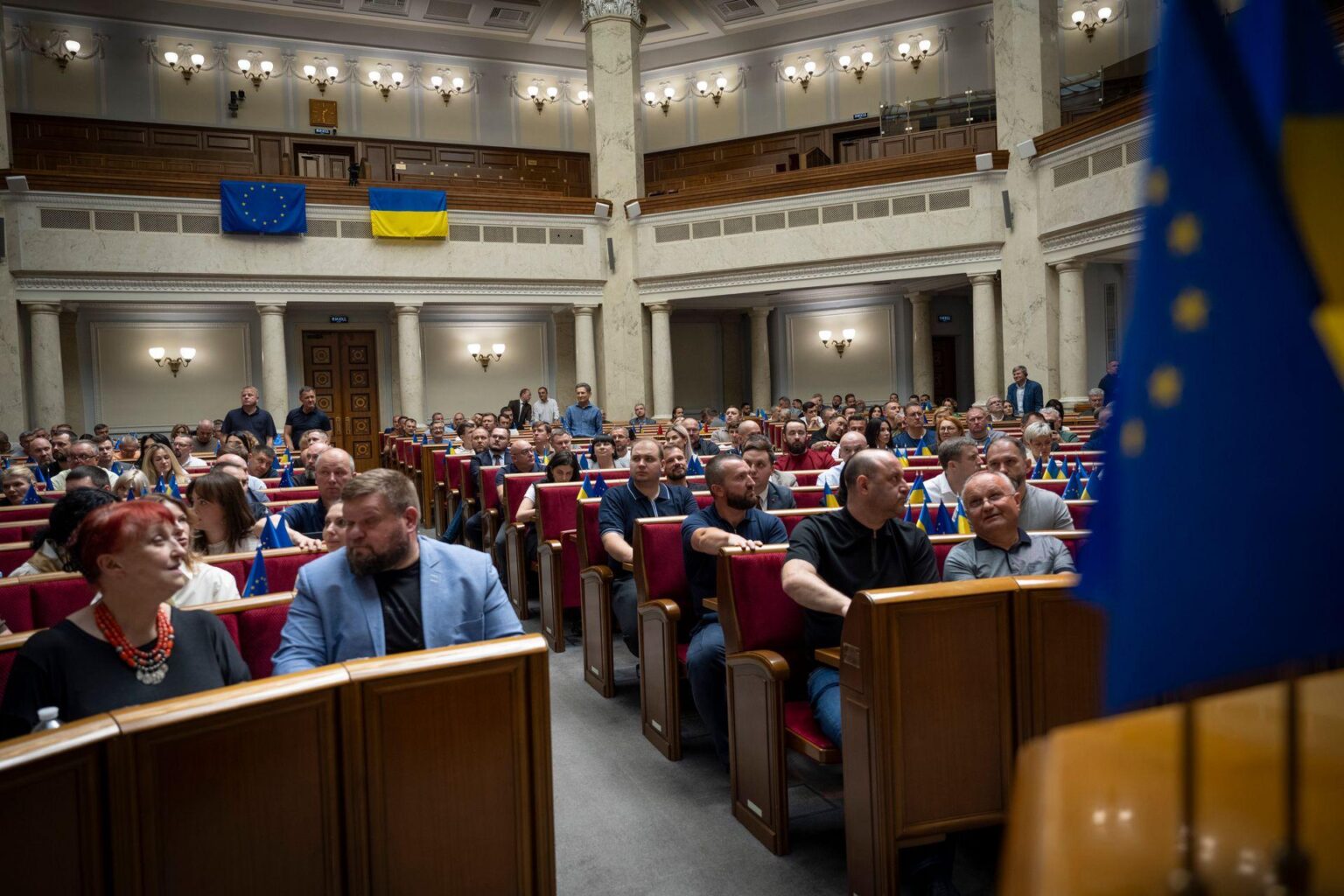**Ukrainian Parliament Restores Independence of Anti-Corruption Bodies**
In a significant move, the Ukrainian parliament has approved a bill that restores the independence of two key anti-corruption agencies. The vote on July 31 was closely watched, with lawmakers approving the legislation in two back-to-back readings.
The National Anti-Corruption Bureau (NABU) and the Specialized Anti-Corruption Prosecutor (SAPO) were founded as part of Ukraine’s post-EuroMaidan anti-graft reforms. However, a previous law passed by President Volodymyr Zelensky’s lawmakers last week effectively dismantled their independence.
The new bill, signed by Speaker Ruslan Stefanchuk, still requires a presidential signature before taking effect. The move is seen as a reversal of the initial legislation that sparked mass demonstrations across Ukraine and backlash from international partners.
**Mass Protests and International Backlash**
The protests against the initial bill have been ongoing for several days in Kyiv and other cities. Demonstrators have gathered outside the Mariinskyi Palace, the presidential residence, and the Verkhovna Rada, Ukraine’s parliament, ahead of the crucial vote on July 31.
International leaders, including European Commission President Ursula von der Leyen, had appealed to Zelensky to stress the importance of anti-corruption infrastructure, a key condition for Ukraine’s EU accession efforts. The European bloc also issued a private warning to Kyiv, saying that failure to reverse the controversial legislation could result in the suspension of certain funding programs.
**Split Among Lawmakers**
The vote was not without controversy. A physical altercation among lawmakers preceded the July 31 vote, while some parliamentarians were accused of being pressured into voting for the initial bill on July 22.
Lawmaker Dmytro Kostiuk, from Zelensky’s Servant of the People parliamentary group, announced he is leaving the group in protest against the initial law. He claimed that his colleagues were pressured to vote for the controversial bill and stated that “there are many questions about the work of NABU and SAPO, but it was the creation of an anti-corruption infrastructure that was the main result of the EuroMaidan Revolution.”
**Commentary**
The approval of this new bill is a significant step towards restoring Ukraine’s commitment to anti-corruption efforts. However, as expert analyst, I believe this move also highlights some deeper issues.
Firstly, it shows the power of mass protests and international pressure in shaping policy decisions. The Ukrainian government has faced intense criticism for its handling of corruption, and this bill is a response to those concerns.
Secondly, it underscores the importance of an independent judiciary and anti-corruption infrastructure in Ukraine’s EU accession efforts. As a candidate country, Ukraine must demonstrate its commitment to these principles if it hopes to join the European Union.
Lastly, the controversy surrounding this legislation serves as a reminder that Ukraine still has a long way to go in terms of strengthening its institutions and fighting corruption. The ongoing protests and opposition to this law are testaments to this reality.
Read More @ kyivindependent.com












